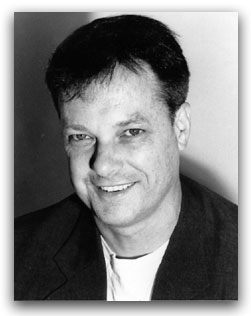Bill Plympton is an independent animator. He has just completed an 80-minute feature, Idiots and Angels. The website can be found here.

Listen: Play in new window | Download (Running Time: 45:44 — 41.9MB)
Condition of Mr. Segundo: Concerned about whether he is becoming a cartoon.
Guest: Bill Plympton
Subjects Discussed: The origin of the square-shouldered suit guys, Plympton’s approach to humor, “Push Comes to Shove” and Alfred Hitchcock, Laurel & Hardy, the fish-slapping dance, crazy first-person perspectives in animation, changing the viewpoint in each shot, the frequent use of weapons in Plympton’s films, cutting people in half with a chainsaw, the Saw movies, violence within a comic context, the Road Runner, Tex Avery vs. Chuck Jones, the problems of cartoons made for children, the innocence of The Tune, dark humor vs. endearing characters, the feeling of music with animation, Idiots and Angels, the worries of French distributors, avoiding dialogue for international distribution, the advantages of low-budget animation, Plympton doing all of his own drawings, detailed backgrounds vs. white space, including more cinematic moves in animation, shadows and shading, Treasure Planet, Hayao Miyazaki, the influence of anime, issuing a graphic novel before making a film, “Parking” and Akira, Paprika, Mind Game as the Citizen Kane of animation, the difficulties of getting American distribution, using digital distribution, not making money from big box stores, making more of a profit through direct connection to the customers, the circumstances in which Plympton will be an animator for hire, working with Kanye West, turning down a lucrative offer from Disney, using multiple frames, the end of Plympton’s clean look, chiaroscuro, the single stroke as an antagonist, the use of digital compositing and early efforts with a Xerox machine, moving away from film to the computer, analog textures, Plympton’s drawer of gags, Plympton’s emphasis on the body, the benefits of surrealism upon anatomy, and being inspired by the “cartoon city” of New York.
EXCERPT FROM SHOW:
Correspondent: I wanted to also ask you about some of the perspectives you have. You had a few shorts — and also in your features — where there’s this first-person perspective. I think of the tree, for example.
Plympton: Yeah, “The Exciting Life of a Tree.†“One of Those Days.â€
Correspondent: I’m wondering how this came about. Did you need to get away from the typical third-person look of these particular shorts?
Plympton: Well, the magic of animation is that the camera can go anywhere you want. And it’s harder to do that with live action. Although it’s easier now with digital technology. Digital effects. But with animation, you can put the camera anywhere. And that’s part of the fun of it. You’re seeing something that is maybe cliched or boring from a different angle. It makes it exciting. It makes it interesting. And so I wanted to see an event from one person’s POV and see the worst day ever — what it would be — if you lived that life. If you were actually in that person’s place. So it’s very autobiographical in that sense.
But I like to do that a lot. I did another film called “Draw,†where it’s a cliche of two cowboys in a mainstream Texas town. And they draw their guns. Only this is a POV of a bullet. And so again, it’s a kind of cliched, boring situation. But when you see it from the eye of a bullet that is traveling through space, going through someone’s heart, it gives it a whole new perspective. And I love that kind of thing that you can do with animation: change the perspective, change the viewpoint in each shot. And that’s the reason why I love animation.
(A longer excerpt can be found here.)
[NOTE: In this podcast, it was pointed out to Bill Plympton that The Tune was available for digital download at Amazon Unbox. Plympton said that he still had the rights. But after some investigation from Plympton and Our Young, Roving Correspondent, it appears that Plympton does not currently have the rights to The Tune.]Listen: Play in new window | Download (Running Time: 45:44 — 41.9MB)
2 Comments